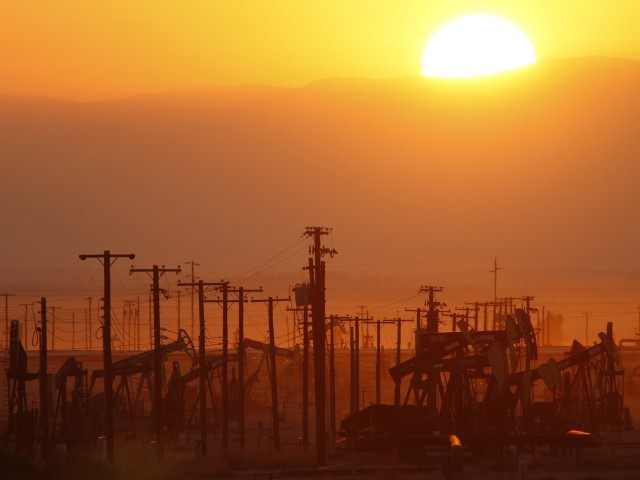A leading left-wing think tank has warned that rising green levies will create an angry public backlash. But rather than arriving at the obvious conclusion – that green energy costs too much to be sustainable – they have called for more re-distributive policies and public ownership of energy assets.
The Institute for Public Policy Research (IPPR), self-described as “the UK’s leading progressive thinktank”, has undertaken an investigation into who is paying the most to fund green and social policies paid for via our energy bills, who is benefiting, and how the two can be more fairly balanced.
It has concluded that “the costs of the government’s low-carbon programme are falling disproportionately on low-income groups.” Specifically, the poorest 10 per cent are spending 1.3 per cent of their income on green levies, compared to the 0.3 per cent spent by the richest 10 per cent.
This is unsurprising, as those on low incomes inevitably spend a larger proportion of their income on energy bills. However, the authors of the report say that the effect is exacerbated by the fact that the poorest often cannot access the lowest tariff rates for energy, with many forced to use prepay meters which add around £80 a year to a energy bills. As the government links energy levies to bills, higher bills mean a higher proportion of the levies fall upon the poorest.
Joss Garman, associate director of the IPPR think tank, said: “The government’s plan to hike up green levies on energy bills risks causing a public backlash against action to address climate change, especially because they hit the poorest households hardest.”
In the report, the IPPR says there has been “insufficient debate about the dramatic rise in charges on energy bills that is set to take place over the next decade to fund progress on low-carbon and social policies”.
Government estimates show that green levies added £68 to the average energy bill of £1,369 in 2014. That figure is set to rise to £141 a year by 2020, and £226 by 2030.
The report warns: “Since political pressure over the cost of bills is very likely to build, this is creating the risk of a sudden, panicked response from politicians that harms efforts to address climate change.
“Serious thinking is needed now to find ways to mitigate the costs that are being put on to consumers without reducing the ambition, which is shared by all the major political parties, for substantially reducing levels of carbon pollution.”
The IPPR has come up with a list of recommendations for how this can be done. But the think tanks takes climate change dogma as fact, and unquestionably accepts the need for restrictive and expensive emissions targets which force a wholesale change shift to expensive renewable energy sources.
“Each consumer could be offered levy relief without jeopardising climate targets, and this could be delivered in such a way that it helps to incentivise energy efficiency. Importantly, it could also recast levy-funding in a progressive manner,” the think tank helpfully suggests.
Its recommendations include turning new nuclear power stations over to public ownership “to secure some gains for the British bill payer”, lifting the moratorium for onshore wind farms ” to ensure cheaper onshore wind capacity is not replaced by more expensive offshore wind or other technologies,” and targeting energy efficiency subsidies at fuel-poor households.
It estimates that it’s recommendations could save consumers £7 billion over the next few decades.
But UKIP’s energy spokesman Roger Helmer MEP told Breitbart London: “To scrap climate change dogma would be easier and cheaper – the policies are profoundly regressive and make no difference to climate change.”
Not mentioned anywhere in the report are the possibilities offered by shale gas, despite the obvious benefits it has brought to the US in terms of bill reduction. Fracking for shale has taken off in the US over the last decade, with a commensurate drop in energy prices for the consumer. Baker Tilly cites the US energy Information Administration as noting that, since 2005, the annual energy costs for US households has fallen by 25 percent.
Critics closer to home are keen to highlight that British consumers are unlikely to reap such dividends from a similar shale boom on this side of the Atlantic as, whereas America has a closed energy market, Britain’s is more global.
Nonetheless, the Chancellor George Osborne is tentatively optimistic. Last year he told the House of Lords economic affairs committee: “No one knows ultimately what the impact of shale will be on the UK economy. I think it does have the potential to bring down gas prices in the UK, but I don’t want to over-promise and suggest it is the solution to all of the UK’s economic problems.
“I think it will have an impact, and I hope it will have a significant impact.”
Likewise, Francis Egan, chief executive of fracking firm Cuadrilla has said that, while prices might not drop as sharply as they have in the US, he believes British customers would still reap benefits. “If you increase supply you exert a downward pressure on price,’ he said.
“Nobody can tell you what the absolute price will be, but I can tell you that it will be lower than it would have been.”

COMMENTS
Please let us know if you're having issues with commenting.